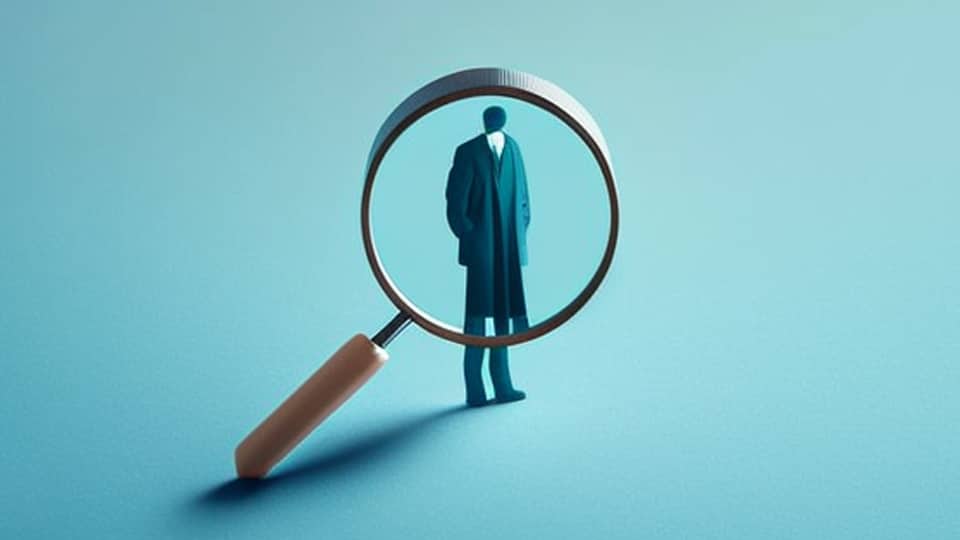What can a magician do when his trick goes wrong?
As a magician, it’s important to understand that mistakes are part of the job. Even the most successful magicians in the world make mistakes. At the end of this article, you’ll see one of them in the video and how he skillfully solves the situation. We are all human, and it’s okay to make mistakes, but what matters is how you deal with them. Here’s what you can do to minimize the chance of error and what professional magicians do when things go wrong.

The mindset of a magician
Understand that you are not only a magician, but also an actor. Your job is to pretend that you can perform miracles with magical powers. Of course, both you and the audience know that you don’t actually have real magic powers. You are playing a game together. That’s why the audience knows that things can go wrong. If you understand your craft and entertain the audience well, they will gladly forgive you for any mistakes.
Prevention
It’s better to avoid mistakes from the beginning rather than fix them later. That’s why I’ve written down the most important tips on how to prevent mistakes:
1. Audience management
If you build a good connection with the audience, not only will the mood be better, but the chance of mistakes will also decrease. Once your audience recognizes that you are playing the same “game” and you are doing your best to entertain them with magical effects, they will make it easy for you. However, if the audience feels that you are being condescending or have an arrogant attitude, then they will perceive your magic as a challenge and try to expose you. They will then start to see the magic as a competition between the audience and the magician, making it harder for you. This increases the chance of mistakes, so my first and most important tip is: Learn how to get the audience on your side and how to make your magic so entertaining for them that they have no need to decipher the effect.

2. Practice to perfection
Before presenting a magic effect to an audience, it must work 100% when you practice alone. The easiest way to avoid nervousness and resulting mistakes is to become so good that you could perform every hand movement in your sleep. This has the added advantage that you don’t focus so much on your own hands during your performances and can fully concentrate on entertaining the audience. Start with simple effects and practice them in front of a mirror. Later, record videos and analyze the weaknesses you see. Find solutions and keep practicing. Only then can you start practicing in front of an audience and working on your routine.
3. Develop "Outs"
“Outs” are options you have prepared in case something goes wrong. Write down all the mistakes that happen during practice and develop a solution for each one. Often you can save the effect by giving it a different ending than originally planned. Sometimes it is enough to recognize the mistake quickly enough to still save the effect. However, you must practice all of this without an audience. If you think a solution will come to you spontaneously once it happens, you are only deceiving yourself. If the mistake is so obvious that it cannot be hidden, at least think ahead of what you will say if it happens. Maybe you can find a funny joke to go with it. There is always an “out” that helps you. Don’t dwell on a failed effect, but instead show something new that works right away. Then your audience will quickly forget the mistake.
4. Minimize sources of error
If you have already found “outs” for the possible mistakes that are on your side, then there are still the sources of errors that are caused by the audience. Think carefully about who you include in your effect. Children and drunk people are often inattentive and sometimes do surprising things that could ruin the trick. Check out the video below for an example. So it’s better to work with sober adults. But if you have to work with drunk people or children due to the situation, consciously make all instructions simple and absolutely clear.
5. Overcome the fear of mistakes
Fear makes you nervous, and when you’re nervous, you make mistakes. So be aware that it’s okay to make mistakes. People aren’t always predictable. You can only do your part to minimize errors, but some things are beyond your control. If something goes wrong, just show something else afterwards. Realize that you will make mistakes and that it’s okay. Then your fear of it will decrease, and you’ll make fewer mistakes. It sounds surprising, but it’s true.
What can you do if the trick goes wrong?
Despite all precautions, it can happen that a trick doesn’t work as planned. But don’t worry, there are a few things you can do to save the effect.
1. Apply your "Outs"
If you make a mistake during a performance, you can apply the discussed “outs” to still bring the effect to a successful end.
2. Don't make the mistake big
When you make a mistake, it’s important not to make it bigger by drawing attention to it. Sometimes, you “flash”, meaning that a secret trick action is accidentally visible to the audience. If that happens, just continue as if nothing happened. Often, the audience doesn’t notice or only a part of the audience sees it. If you talk about the mistake now, everyone will know. But if you instead continue with the effect, it will be a great magic trick for the audience members who didn’t see the mistake. The audience finds important what you consider important. If you’re embarrassed about the mistake and make a big deal out of it, the audience will be uncomfortable too. But if you don’t take the mistake too seriously, neither will your audience.
3. Take it with humor
If it’s impossible to hide that a mistake happened, you can take it with humor. Make a funny comment about it and openly admit that the trick didn’t work as planned. A great example of this technique can be found in this video:
4. Respecting the audience
No matter how a mistake happened, it’s always important to treat the audience with respect and not blame them. Usually, the fault is with you because you either created a competitive situation with the audience, didn’t explain well enough, or chose the wrong assistant. In any case, you should treat your audience respectfully, even if one of them accidentally or even intentionally ruins the magic trick.
Safety always comes first
If there is even the slightest chance that something could go wrong during the trick and someone could get hurt, it is absolutely irresponsible to perform it. Magic tricks that present a danger must be 100% safe and must never actually be dangerous, especially when audience members are involved.

Summary
Mistakes can happen to any magician, and it’s not a big deal. However, you can minimize the chance of errors by eliminating sources of error and being prepared for possible mistakes. If a mistake does happen, there are several ways to save the situation, such as applying “outs,” not making the mistake worse, and taking it with humor. Ultimately, it’s important that everyone is well-entertained. If you keep these things in mind, your fear of mistakes will decrease, and your audience will feel the confidence that you exude.
Fabian Schneekind
I have been a professional magician and illusionist for many years, specializing in business and networking events, team building activities, and Christmas parties. Additionally, I have focused on breaking the ice between guests as a wedding magician. In my blog, I aim to share my experiences with event planners to make their planning process easier. Furthermore, I enjoy imparting my knowledge to aspiring magicians to provide them with insights into the life of a professional magician.


